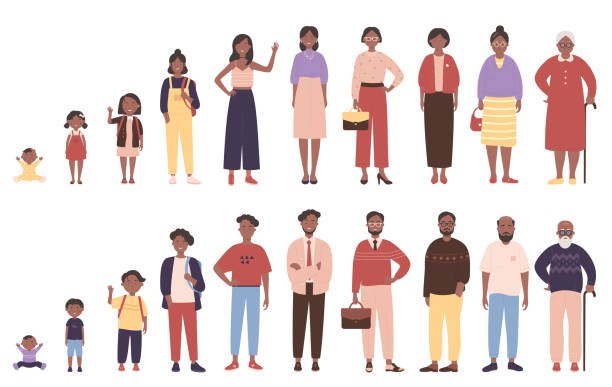In the rapidly evolving landscape of 21st-century education, teachers are no longer just imparting knowledge; they are preparing students for a future that is increasingly complex and interconnected. South Africa, with its diverse culture, languages, and social challenges, presents a unique environment that demands a distinct skill set from educators. The integration of technology, evolving pedagogical theories, and a push for more inclusive, student-centric learning are transforming what it means to be a teacher.
Recognizing the need for a multifaceted approach to teaching, there is a growing emphasis on equipping teachers with a range of skills that go beyond traditional subject matter expertise. South African teachers are uniquely positioned, having to often function in classrooms where resources are scarce, and where the social fabric is woven with threads of historical inequity, multiple languages, and varied cultural norms. This makes the demand for diverse skills even more pertinent.
The importance of possessing a comprehensive skill set can’t be overemphasized. Whether it’s mastering the art of effective communication in a multilingual classroom or developing the ability to integrate technology seamlessly into everyday lessons, the modern teacher’s role has extended far beyond the conventional. This article delves into the 15 essential skills that every South African teacher should possess in this complex educational landscape.
List of 15 Skills that a 21st Century Teacher Should Possess in South Africa
- Digital Literacy: With the rapid advancement of technology, teachers need to be digitally literate to navigate various platforms and educational software.
- Critical Thinking: The ability to critically evaluate information and situations is key, especially in a world overwhelmed with information.
- Emotional Intelligence: Given the diverse classrooms in South Africa, being emotionally aware can help in managing a classroom more effectively.
- Adaptability: Given the constant changes in curricula, technology, and student needs, teachers should be flexible in their approach to education.
- Data Analytics Skills: With increasing reliance on data-driven strategies, a teacher should understand how to interpret educational data for improved teaching methods.
- Collaboration: Teamwork is not just important for students; teachers also need to collaborate with colleagues, parents, and community members.
- Cross-Cultural Competency: South Africa’s diverse cultural landscape requires teachers to be competent in cross-cultural interactions and teaching methods.
- Communication Skills: Effective verbal and written communication is crucial, both for instructing students and for interacting with parents and colleagues.
- Problem-Solving: Teachers should be adept at problem-solving, whether it’s dealing with administrative issues or adapting teaching methods to cater to different learning styles.
- Project Management: Running a classroom is akin to managing a small project, requiring skills in planning, execution, and assessment.
- Technology Integration: The ability to seamlessly integrate technology into lessons to enhance learning is increasingly important.
- Global Citizenship: Encouraging students to become responsible global citizens requires a teacher who is themselves globally aware and educated.
- Creativity and Innovation: Traditional teaching methods are constantly evolving, and the ability to think outside the box is vital for modern educators.
- Ethical and Legal Understanding: With cyberbullying, plagiarism, and other ethical issues becoming more prevalent, teachers need to impart the importance of ethics and law to students.
- Lifelong Learning: A commitment to ongoing professional development is crucial in the fast-evolving educational landscape.
1. Digital Literacy
In today’s world, digital literacy is not just an add-on but a necessity for teachers. Knowing how to navigate digital platforms, make use of educational software, and integrate technology into the curriculum is crucial for engaging the modern student. With the rise of online learning, a digitally literate teacher is better equipped to manage both in-person and remote teaching environments.
Understanding how to use various software for tasks like grading, content creation, and communicating with parents can substantially ease a teacher’s workload. In the South African context, where there might be disparities in access to technology, a digitally literate teacher can also better adapt to different settings, ensuring that students without much tech access aren’t left behind.
Example: Mrs. Mokoena, a history teacher, uses interactive digital timelines and online quizzes to make her lessons more engaging. She also employs an online management system where students can submit their assignments and receive feedback, allowing for a smoother, paperless process.
2. Critical Thinking
Critical thinking is a vital skill that involves analyzing, evaluating, and creating new ways of understanding. Teachers need to model this skill to students, showing them not just what to think but how to think. The ability to critically evaluate information is increasingly important in an era where misinformation can spread easily.
In the classroom, teachers should promote open dialogue, encourage questions, and facilitate activities that challenge students to apply logic and reason. This not only enhances the quality of teaching but also equips students with the skills they need to assess the credibility of information.
Example: During a discussion on climate change, Mr. Naidoo encourages students to examine various sources and critically evaluate their credibility. He also asks probing questions that prompt students to consider the implications of different policies, thus fostering critical thinking skills.
3. Emotional Intelligence
Emotional intelligence involves recognizing one’s own emotions and those of others, and managing them effectively. In the South African classroom, which can be a melting pot of cultures, backgrounds, and socioeconomic statuses, high emotional intelligence is crucial for teachers.
Being aware of the emotional undercurrents in a classroom allows for better conflict resolution, targeted emotional support, and a more cohesive learning environment. It’s not just about textbook learning; emotionally intelligent teachers help students develop soft skills like empathy, conflict resolution, and emotional self-regulation.
Example: Mrs. Smith notices that one of her students, Lerato, seems disengaged and upset. Instead of ignoring the issue or disciplining her for not paying attention, Mrs. Smith takes time to privately ask Lerato if everything is alright, providing emotional support and creating a safe space for her.
4. Adaptability
The modern educational landscape is constantly evolving, influenced by policy changes, technological advancements, and societal shifts. Teachers must be adaptable, willing to revise lesson plans, implement new teaching methods, and adjust to different classroom dynamics.
In South Africa, where educational resources and technological infrastructures may vary widely between urban and rural areas, adaptability is even more crucial. Teachers must be prepared to modify their teaching methods to cater to diverse student needs and circumstances, ensuring inclusive and equitable education for all.
Example: Mr. Jacobs learns that his rural school will not have internet access for a month due to infrastructure issues. Instead of relying on online resources, he quickly adapts and switches to project-based learning and textbook exercises to ensure that the syllabus is covered.
5. Data Analytics Skills
Data analytics skills involve collecting, processing, and interpreting data. In education, this might involve anything from test scores to behavioral trends. Data-driven strategies help teachers identify areas where students might be struggling and adjust their teaching methods accordingly.
South Africa’s complex educational landscape, marked by inequality and diversity, demands nuanced approaches that are informed by accurate data. Whether it’s achievement gaps, attendance, or participation in class, a data-driven approach can offer crucial insights.
Example: Ms. Khumalo uses analytics software to track the performance of her students in monthly tests. She notices a consistent drop in scores in algebra, so she allocates more time to that subject and implements remedial classes.
6. Collaboration
Teaching is no longer a solitary profession, confined to a single classroom. Teachers need to collaborate with colleagues for curricular planning, with parents for child development, and even with other schools and educational bodies for best practices. Teamwork skills are vital in ensuring that the educational process is comprehensive and inclusive.
In the South African context, collaboration can also be a powerful tool for resource sharing, especially in less privileged schools or rural settings. Teachers from different schools can share teaching materials, strategies, and even conduct joint virtual classes to offer a broader range of experiences for their students.
Example: A group of teachers in a Johannesburg district form a collaboration network where they share teaching materials and lesson plans, ensuring that they have a wealth of resources to draw from and different perspectives to consider.
7. Cross-Cultural Competency
South Africa’s rich cultural diversity makes cross-cultural competency a necessary skill for teachers. This involves not only understanding cultural differences but also valuing diversity and incorporating multiple perspectives into teaching methods. Teachers need to be aware of cultural sensitivities and be capable of discussing them openly and respectfully with students.
Cultural competence is crucial for creating an inclusive educational environment where all students feel seen and valued. Given South Africa’s history of racial and ethnic divisions, fostering an inclusive educational space is not just beneficial but necessary for national cohesion.
Example: Ms. Van der Merwe includes literature from various South African cultures in her syllabus, making sure that each culture is represented and discussed in her literature class. She also takes the time to celebrate different cultural festivals in the classroom, involving students in presentations about the significance of these events.
Example: Ms. Van der Merwe assigns students to present about different cultural festivals and their significance, thus giving them a firsthand understanding of the country’s rich cultural mosaic. This fosters an environment of respect and inclusivity.
8. Active Listening
Active listening is more than just hearing what someone is saying; it involves fully engaging with the speaker to understand their message, ask pertinent questions, and offer thoughtful feedback. This skill is particularly crucial in educational settings where nuanced subjects or personal issues may arise.
In the context of South Africa, where classrooms can be a blend of languages and cultures, and where social and emotional issues often come to the fore, being an active listener can mean the difference between identifying a teachable moment and missing it entirely.
Example: When a student raises a sensitive question about social inequality during a classroom discussion, Mr. Johnson doesn’t brush it off but rather listens intently and uses it as a springboard for a meaningful discussion, bringing educational value to an impromptu topic.
9. Time Management
Effective time management is crucial for teachers who juggle various tasks including lesson planning, grading, administrative duties, and parent-teacher meetings. It’s not just about getting things done but ensuring they are done effectively and efficiently.
South African teachers, who may be working in resource-constrained settings and large class sizes, particularly need strong time management skills to make the most of the educational time available.
Example: Mrs. Ndlovu uses a digital calendar and reminders to prioritize her tasks. She sets aside specific blocks of time for grading, lesson planning, and student consultations, ensuring that she remains productive without feeling overwhelmed.
10. Communication Skills
Excellent communication is essential for effective teaching. Teachers must be able to convey complex ideas in easily understandable ways, and they must also be proficient in written communication for grading and correspondence.
In a country like South Africa where multiple languages are spoken, being adept in more than one language can be an added advantage. Communication skills also extend to being able to effectively communicate with parents and other stakeholders in the education process.
Example: Mr. Swart, a math teacher, sends out regular newsletters to parents, updating them on what has been covered in class, upcoming tests, and how they can support their children’s learning at home.
11. Creativity
Creativity isn’t just for the art room; it’s a valuable skill for any teacher trying to make lessons engaging and effective. Whether it’s thinking of a new way to explain a challenging concept or finding a way to bring a textbook to life, creativity can greatly enhance the learning experience.
In South African classrooms, where resources can sometimes be limited, a creative teacher can use everyday materials to supplement their lessons and engage students in active learning.
Example: Ms. Mthembu doesn’t have access to expensive lab equipment, so she uses everyday items like vinegar and baking soda to conduct science experiments, making the subject matter engaging and relatable to her students.
12. Problem-Solving Skills
Teachers face a multitude of challenges every day, from managing disruptive behavior to figuring out how to make a difficult subject understandable. Being able to quickly identify problems and come up with practical solutions is a highly valuable skill.
For South African teachers, problem-solving can often mean improvising in low-resource environments or resolving conflicts in culturally diverse classrooms.
Example: When Ms. Nkosi realizes that her rural classroom won’t receive the promised textbooks in time for the semester, she quickly organizes a book-sharing system and supplements it with downloadable resources she can display on her laptop.
13. Classroom Management
Effective classroom management goes beyond discipline; it involves creating a positive learning environment where students are engaged, focused, and respectful. Teachers must be adept at various techniques, from arranging the classroom for optimum learning to implementing rules and procedures.
In South Africa, where classrooms can be overcrowded and teachers may face numerous other challenges such as language barriers, effective classroom management is essential for learning to occur.
Example: Mr. Pillay uses positive reinforcement strategies to encourage good behavior in his class, rewarding students with small privileges like leading a class activity or having extra free time.
14. Networking Skills
In an increasingly interconnected world, networking is not just for business professionals but also for teachers. Networking can include connecting with other educators, joining professional associations, and even keeping in touch with former students.
In the South African context, networking can provide opportunities for resource-sharing, professional development, and career advancement. It is particularly beneficial for teachers in rural or underserved areas who can gain access to resources and training materials through their network.
Example: Mrs. Jackson makes it a point to attend educational conferences and actively participates in online teacher forums where she shares her experiences and gathers new ideas to implement in her classroom.
15. Lifelong Learning
The most effective educators are those who view teaching not as a job but as a vocation requiring continuous learning. This can be in the form of formal education, professional development courses, or self-directed learning.
Given the evolving challenges in South African education, including the integration of technology and the need for decolonized and diverse curricula, being a lifelong learner is especially relevant.
Example: Ms. Mabaso regularly attends webinars on implementing technology in education and reads up on new methods of culturally responsive teaching to ensure her teaching methods are current and inclusive.
These 15 skills are not just theoretical but deeply practical, especially in the complex educational landscape of South Africa. They equip teachers to face current challenges while preparing them for the evolving demands of 21st-century education.
Conclusion
In the 21st century, teaching is not just a profession but a calling that requires a versatile and continuously evolving skill set. As we’ve seen, the modern South African teacher needs to be a communicator, a technologist, a mediator, and a lifelong learner, among other things. These skills are not isolated but are interlinked, each contributing to a holistic approach to education that prepares students for the multifaceted world they will inherit.
The South African educational system is as diverse and complex as the country itself, facing a myriad of challenges ranging from resource limitations to socio-cultural barriers. Against this backdrop, teachers stand as the pillars of the future, their skills echoing far beyond the confines of the classroom. It is, therefore, crucial that we invest in the development of these skills, not just through formal education but also through ongoing professional development and real-world practice.
In conclusion, the 15 skills outlined in this article serve as a roadmap for teachers navigating the intricate educational landscape of South Africa. These competencies don’t just address the challenges of today; they prepare educators for the evolving demands of tomorrow. In a world that is ever-changing, these skills equip teachers to be not just educators, but architects of a more enlightened, inclusive, and capable future generation.



